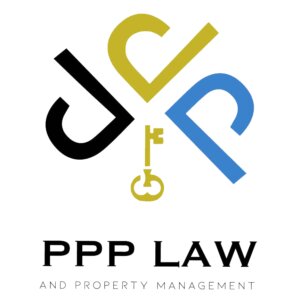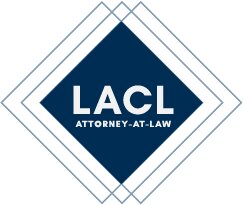Best Private Equity Lawyers in Huai Khwang
Share your needs with us, get contacted by law firms.
Free. Takes 2 min.
List of the best lawyers in Huai Khwang, Thailand
Thailand Private Equity Legal Questions answered by Lawyers
Browse our 1 legal question about Private Equity in Thailand and read the lawyer answers, or ask your own questions for free.
- Land dispute
- My wife and I bought land from her aunt during COVID, when we lived in England. So we put the land in her mother's name, because we could not travel due to COVID. We moved to Thailand 10 months ago and have recently found out that my mother-in-law had finance... Read more →
-
Lawyer answer by C.P. LAW BUSINESS CONSULTANT
You can sue to recover all your property, land, or money, and also claim compensation for any damages you have suffered. If we find that all their actions constitute criminal fraud, we can prosecute them.
Read full answer
About Private Equity Law in Huai Khwang, Thailand
Private Equity (PE) law in Huai Khwang, Thailand, forms a significant part of the local investment and business landscape. Situated in Bangkok, Huai Khwang is home to numerous businesses ranging from startups to well-established corporations, making it a hotspot for private equity deals. Private equity involves investing in companies, usually through a pooled fund, with the aim of increasing their value and eventually exiting with a profit. In Thailand, this sector is regulated by a combination of domestic commercial laws, foreign investment regulations, and specific guidelines from agencies like the Securities and Exchange Commission (SEC).
Private equity transactions in Huai Khwang often involve complex structuring, negotiation, and documentation. The process typically spans due diligence, deal structuring, regulatory compliance, negotiation of investment agreements, and eventual exit strategies such as trade sales or public listings. Local knowledge is crucial to navigate the legal parameters set by Thai authorities and ensure a smooth transaction.
Why You May Need a Lawyer
Navigating private equity deals in Thailand, and specifically in Huai Khwang, requires comprehensive legal knowledge and careful attention to regulatory details. Here are some common situations when you may need a lawyer:
- Conducting due diligence on a target company to ensure there are no hidden liabilities or compliance issues
- Structuring investment vehicles to maximize tax efficiency and legal protection
- Negotiating and drafting investment agreements, shareholder agreements, and other essential documentation
- Handling disputes between investors, fund managers, or company founders
- Ensuring compliance with the Thai SEC and other regulatory bodies
- Examining cross-border transaction requirements, especially when foreign investors are involved
- Guiding companies through the process of public offerings as an exit strategy
- Protecting intellectual property related to business assets within the target company
- Ensuring any restrictions on foreign ownership are respected
- Advising on labor law implications for acquired or merged entities
An experienced private equity lawyer will help protect your interests throughout the process, minimize risks, and ensure all legal and regulatory obligations are met.
Local Laws Overview
Private equity in Huai Khwang is primarily governed by Thai commercial and investment laws, which aim to provide a secure framework for both local and foreign investors. Key aspects to consider include:
- Foreign Business Act (FBA): Sets out restrictions on foreign ownership in certain sectors. Many private equity deals require careful structuring to comply with FBA limits.
- Public Limited Companies Act: Regulates the formation and management of companies, relevant when investing or restructuring entities.
- Securities and Exchange Act: Overseen by the Thai SEC, this law covers the offering of securities, fund management, and investor protection measures.
- Investment Promotion Act: Offers incentives for eligible investment projects, including tax benefits and simplified administrative procedures, which can be important in deal structuring.
- Labor Protection Act: Governs labor rights and may impact mergers or acquisitions where employee interests are involved.
- Anti-Money Laundering Laws: Compliance is critical for all financial transactions, including private equity investments.
- Competition Law: Mergers and acquisitions must be assessed for compliance with regulations designed to prevent monopolistic practices and promote fair competition.
Legal and regulatory requirements can be complex and sometimes require prior approval from governmental bodies. Work with a legal professional who is familiar with both local practices in Huai Khwang and national legislation to navigate these requirements effectively.
Frequently Asked Questions
What is private equity?
Private equity refers to investment made into companies that are not publicly traded. It typically involves acquiring significant stakes in businesses to improve their performance and ultimately sell them for a profit.
Is foreign investment allowed in private equity in Thailand?
Yes, foreign investment is permitted but is subject to sector-specific restrictions under the Foreign Business Act. Some sectors prohibit or limit foreign ownership, requiring careful legal structuring of deals.
Do I need government approval for a private equity investment?
Certain private equity transactions, especially those involving restricted sectors or large investments, may require approval from the Ministry of Commerce, the Board of Investment, or the Thai SEC.
What taxes apply to private equity transactions in Thailand?
Taxes may include corporate income tax, capital gains tax, withholding taxes, and value-added tax, depending on the structure of the transaction and the entities involved. Tax planning is essential for maximizing returns.
How can I protect my investment in a private equity deal?
Investor protection mechanisms include thorough due diligence, well-drafted shareholder agreements, defined exit strategies, and clear dispute resolution clauses. A lawyer can help ensure these protections are in place.
What due diligence is required before investing?
Due diligence should cover the target company's financial health, legal compliance, intellectual property, employment matters, existing liabilities, and any ongoing litigation or disputes.
How are disputes resolved in private equity deals?
Dispute resolution mechanisms are typically included in investment and shareholder agreements. Common options include negotiation, mediation, arbitration, or litigation through Thai courts.
Can private equity funds be set up in Huai Khwang?
Yes, it is possible to establish private equity funds in Huai Khwang, but the fund must comply with local licensing requirements under the Securities and Exchange Act and be regulated by the SEC.
Are there any restrictions on exit strategies?
Exits may be limited by contract terms, regulatory approval, or market conditions. Public listings (Initial Public Offerings), trade sales, and buybacks are all common in Thailand but each has its procedural requirements.
How do I choose the right lawyer for my private equity needs?
Look for a lawyer or law firm with expertise in Thai commercial, tax, investment, and securities law, ideally with experience in private equity transactions and a presence in the Huai Khwang area.
Additional Resources
If you are seeking more information or official guidance, consider the following resources and organizations:
- Thailand Securities and Exchange Commission (SEC) - Regulatory authority for investment and securities
- Department of Business Development (DBD), Ministry of Commerce
- Board of Investment (BOI) - For information on investment incentives and permissions
- Thai Venture Capital Association (TVCA) - Industry body for private equity and venture capital professionals
- Bangkok Bank and local commercial banks with specialized business banking services
- Qualified Thai law firms with private equity expertise in the Huai Khwang district
- Chamber of Commerce offices for local business climate insights
Next Steps
If you believe you need legal assistance with a private equity matter in Huai Khwang, Thailand, here is how to proceed:
- Clearly identify your objectives - whether investing, raising capital, or restructuring.
- Gather all relevant documents related to your business or intended investment.
- Contact a reputable law firm or legal advisor experienced in private equity law in Thailand, preferably with local presence in Huai Khwang.
- Arrange an initial consultation to discuss your goals, the legal process, anticipated costs, and potential challenges.
- Work collaboratively with your legal counsel to conduct necessary due diligence, navigate compliance, and structure your investment or transaction in accordance with Thai laws and regulations.
Taking proactive steps and engaging a knowledgeable legal professional is the best way to ensure your private equity transaction in Huai Khwang is successful, secure, and compliant.
Lawzana helps you find the best lawyers and law firms in Huai Khwang through a curated and pre-screened list of qualified legal professionals. Our platform offers rankings and detailed profiles of attorneys and law firms, allowing you to compare based on practice areas, including Private Equity, experience, and client feedback.
Each profile includes a description of the firm's areas of practice, client reviews, team members and partners, year of establishment, spoken languages, office locations, contact information, social media presence, and any published articles or resources. Most firms on our platform speak English and are experienced in both local and international legal matters.
Get a quote from top-rated law firms in Huai Khwang, Thailand — quickly, securely, and without unnecessary hassle.
Disclaimer:
The information provided on this page is for general informational purposes only and does not constitute legal advice. While we strive to ensure the accuracy and relevance of the content, legal information may change over time, and interpretations of the law can vary. You should always consult with a qualified legal professional for advice specific to your situation.
We disclaim all liability for actions taken or not taken based on the content of this page. If you believe any information is incorrect or outdated, please contact us, and we will review and update it where appropriate.













